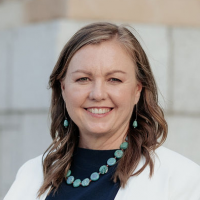Articles / Psychiatrists’ walkout: is NSW just the first domino to fall?

While GPs are split 50/50 down the middle on their support, or lack thereof, for the more than 200 NSW public psychiatrists who have delivered their resignations, 67% believe it will prompt government action to address the issue, according to a national Healthed survey with 2000 respondents so far.
Royal Australian and New Zealand College of Psychiatrists President Dr Elizabeth Moore said the crisis has been years in the making due to a chronically underfunded system.
“Despite a 60% increase in psychiatry trainees in NSW over the last 10 years, only one in five intend to stay in NSW public health,” Dr Moore said. “We can’t grow the workforce if we’ve got a leaky pipeline.”
The Australian Salaried Medical Officers’ Federation says psychiatrists in NSW are earning 30% less than their colleagues in other states and territories. They’re asking for a 25% rise in base-pay over one year, but the NSW government has refused, offering just 3% more.
“The problem is not about salaries – but rather about working with significant staff shortage due to the discrepancy in psychiatrists pay in other states,” one GP in Healthed’s survey summed up.
“Working under stressful/dangerous conditions because the health department won’t listen to your needs is unsustainable,” another surveyed GP said.
The mass resignations equate to about half the public psychiatrists in NSW – though the ABC has reported that one third have been re-hired as independent contractors.
NSW’s Industrial Relations Commission will hear the case on 17 to 21 March.
Seventy five percent of surveyed GPs said the under-resourcing of public psychiatrists is a significant issue beyond NSW – so it may only be a matter of time before psychiatrists in other states and territories follow suit.
“The RACGP’s Health of the Nation Report showed mental health consults as the top reason Australians visit their GP. Mental health presentations in emergency departments and overnight admissions have surged, pushing the system beyond capacity,” Dr Moore told Healthed.
“Patients are arriving in crisis, their conditions more acute than ever, and wait times for admissions stretching beyond 31 hours in some states. Meanwhile, at least six private hospitals providing critical psychiatric care closed their doors in 2024, leaving even fewer options for those in desperate need,” Dr Moore said.
“In NSW, and right across the country, this crisis has been years in the making. There are countless reports and inquiries warning of chronic workforce shortages and under-resourcing of the system.”
“Evidence shows that the conditions that lead to burnout also lead to worse patient outcomes,” RANZCP President Dr Moore said.
While more than two-thirds of surveyed GPs believe that the mass resignation will lead the government to take action to address the problem, they were divided on whether it was the appropriate approach.
“Mass resignation is a very extreme measure that would likely result in considerable harm to many patients, at least in the short term,” one GP commented.
“It’s the only way to affect change but it does leave patients at risk. I partially support it,” another GP said, reflecting a common sentiment.
“Sometimes only extreme measures achieve outcomes. However, mass resignation will likely induce expensive, less effective changes. Longer term advocacy may have achieved more long-term effective solutions,” another GP said.
“I understand their needs: chronically understaffed, lack of resources, lack of support, low morale, underappreciated, undervalued and the government is not willing to negotiate in good faith, etc. But mental health patients are among the most vulnerable patients, high risk of suicide, and under- represented politically. Public patients are already waiting a long time to see psychiatrists,” another added.
“Mass resignation may be the only way to gain Government’s attention.” – Surveyed GP
Some GPs felt more negotiations were in order, but others felt that despite the regrettable impacts, mass resignations were probably necessary to achieve results.
“I think Federal and State governments have taken the medical profession for granted for decades. The mass resignation might awaken them to the fact that the medical system is facing a crisis on many fronts,” is how one GP put it.
“It seems to be the only way that their concerns are heard and addressed,” said another.
What GPs are saying
“It is regrettable that the hospitals and government are not coming to the party. Sad that it should come this point where the vulnerable patients pay the price for what is not in their control.”
“I feel sad it has come to such a dramatic action being necessary … The huge cost to patients and the psychiatric care hence delegated to GPs, nurses and psychologists who are already overloaded and under-skilled, will not fill the niche void.”
“The patients, families and community are more at risk. It’s already difficult to send patients to the public hospital’s mental health team now. Many patients can’t afford private psychiatrist, and even if they are willing to pay it’s very hard to get appointment.”
“Like us GPs, the public psychiatrists are undervalued and underpaid compared to their interstate colleagues. We should do the same.”
“Ridiculous that there is a significant pay differential with other states. I wish GPs would also stand up for themselves and demand better pay. No wonder new doctors don’t want to consider being a GP or psychiatrist.”
“The resignations are likely to add unprecedented pressure on GPs, who already have a significant mental health caseload, and are time poor.”
“I understand and support their position, but am worried about the availability of expert care in the public system.”
“I sympathise with continuing to practice in a dangerous setting. If something goes wrong they will probably get no support from their employer.”
“While this puts strain on the public mental health system, the psychiatrists need to be remunerated appropriately and given safe and appropriate conditions.”
“Being a doctor means providing service to human beings. One must not forget the Hippocratic oath.”
“It leaves vulnerable patients unsupported.”
“I think they are undervalued and underpaid. This is especially considering the medicolegal implications and there is suicide or homicide behaviour, and someone points the finger at those responsible for the healthcare of these mentally ill patients.”
“If you push somebody in the corner and do not listen to their concerns, then they (psychiatrists) have every right to retaliate.”
“As a GP who works in mental health I am slightly resentful of the fact that I tend to do the bulk of work for psychiatrists and that they are now picking and choosing who they see. It all falls back on the GP with no backup system and all the medico legal risk – a joke. But hey, go them.”
“Medical practitioners are generally ignored by politicians and bureaucrats when they provide REALITY CHECKS to inadequate funding, poor systems, wasteful or deficient management & programmes. Doctors are misrepresented as greedy, and self-serving, when the opposite is almost always the case… There will need to be much more of this type of action to have any chance of saving a health system currently in a terminal tailspin!”

PSA Testing Demystified

Migraine Management Update

Trauma-Informed Care in GP

Prevention and Management of Diabetic Retinopathy


Yes
No
Listen to expert interviews.
Click to open in a new tab
Browse the latest articles from Healthed.
Once you confirm you’ve read this article you can complete a Patient Case Review to earn 0.5 hours CPD in the Reviewing Performance (RP) category.
Select ‘Confirm & learn‘ when you have read this article in its entirety and you will be taken to begin your Patient Case Review.
Kickstart your learning for 2025 and earn up to 24 hours of CPD across all three learning categories (EA, RP & MO).